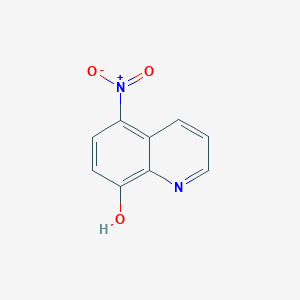-
Categories
-
Pharmaceutical Intermediates
-
Active Pharmaceutical Ingredients
-
Food Additives
- Industrial Coatings
- Agrochemicals
- Dyes and Pigments
- Surfactant
- Flavors and Fragrances
- Chemical Reagents
- Catalyst and Auxiliary
- Natural Products
- Inorganic Chemistry
-
Organic Chemistry
-
Biochemical Engineering
- Analytical Chemistry
- Cosmetic Ingredient
-
Pharmaceutical Intermediates
Promotion
ECHEMI Mall
Wholesale
Weekly Price
Exhibition
News
-
Trade Service
By 2020, the new crown virus (SARS-CoV-2) has infected more than 10 million people worldwide, killing more than half a million peopleThere is no doubt that we urgently need to develop effective antiviral therapiesIn a new research paper published onlinethe leading academic journal Cell, an international team of researchers has identified a variety of compounds that inhibit viral activity by analyzing the specific processes of the neo-coronavirus "hijacking" cell proteins that were previously unknown to them as having the potential to treat COVID-19Given that some of them have been approved by the FDA, the researchers recommend testing these drugs in clinical trials as soon as possiblefaced with this entirely new virus, and although there have been many breakthroughs in understanding in just six months, there are still many unknowns about how it can use human cells to replicate and infect more cellsa growing body of research evidence that the spread of the new coronavirus has different characteristics than other similar virusesIf more details can be found about the new crown virus-infected cells, more targeted strategies can be found to treat the new coronal diseaseThis is also the significance of this research workwe know that viruses cannot replicate on their own and must rely on other organisms (i.ehosts) to carry, replicate, and spread to new hostsIn the process, the virus needs to manipulate the protein machine sin of the host cell to produce new virus particlesthe researchers point out that this process of "hijacking" host cells involves changes in the activity of a range of enzymes and other proteinsPhosphinization is an important way to regulate protein activity, playing a key role in cell growth and death, cell-to-cell signaling, and so onSpecifically, phosphorylation refers to an enzyme called kinase that adds a phosphate group to the target protein, changing the activity of the proteinhow doesvirus change the phosphorylation patterns of proteins in cells to promote their own spread? To answer this, the team used mass spectrometry-based proteomics to assess cells infected with the new coronavirus and measure changes in host proteins and viral proteinsThey found that 12 percent of the proteins in cells that interact with viruses have changed phosphorylationAmong them, the activation of casein kinase II (CK2) and p38/MAPK signaling pathways is most likely to regulate these modification processesThese results suggest that kinase is a potential drug target to stop the virus's activitystudy found that, by the interlinkage of a series of kinases, the virus infection of the new crown causes cells to stay at a node in the cell cycleThis means that "the virus hinders cell division and provides a relatively stable and abundant environment for continuous replication of the virus." DrPedro Beltrao, head of the EMBL team, explainedeven more surprising is that the new coronavirus not only affects cell division, but also allows infected cells to change shape, growing slender, forked filamentous feet that act like many of the "arms" that the cells stretch out to help the virus "reach" neighboring cellsThe researchers speculate that structural changes in cells help infect more cells!based on the results of kinase activity, the researchers identified 87 drugs and compounds with antiviral potential"The structural characteristics of kinase make them good drug targets." "There are already some developed drugs for the several kinases we identified, so we think that clinical researchers can test the antiviral effects of these drugs in trials," Professor Beltrao said"
of the drugs and compounds initially tested in the lab, the researchers found that seven of the inhibitors targeted with kinase, including silmitasertib, an anti-cancer drug in small molecules, and giteritinib, which has been approved for leukemia, showed strong antiviral activity in the experiment." We hope to build on this work by testing more kinase inhibitors, as well as identifying more mechanisms and potential therapies that can effectively interfere with COVID-19Professor Kevan Shokat, head of research at UCSF, saidProfessor Nevan Krogan, another co-author of the, said: "The data-driven drug discovery approach allows us to identify a new set of drugs that can be used alone or in combination with other drugs, with great potential to fight the new crownIf these drugs will end the outbreak, we will be happy "
expects scientists to work to bring the outbreak to an end as soon as possible, and that's the biggest wish for countless people in the second half of 2020 .







